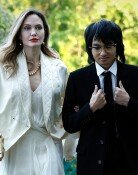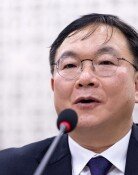Economic environment is mixed bag
Economic environment is mixed bag
Posted November. 29, 2000 15:02,
When the Daewoo Motor labor union and management dramatically reached an agreement on a restructuring program, a high-ranking official of the Ministry of Finance and Economy (MOFE) gave a sigh of relief and said that uncertainties surrounding the Korean economy are being cleared away gradually.
Until recently, the Korean economy faced various negative factors. Now favorable factors are growing. Still, it is too early to be optimistic, as there are many uncertainties that could hamper the nation's economy.
The dramatic agreement between Daewoo Motor's trade union and management on restructuring has provided a momentum to resume negotiation for sale of the company. So it will have a positive effect internally and externally. In particular, it is meaningful that the company's hard-line union has agreed to the restructuring program, which includes massive reduction of manpower.
Also, the foreign exchange market and stock market, which were in trouble with soaring exchange rates and a sliding stock price index, promptly have regained stability. The exchange rate soared over 1,200 won per U.S. dollar at one point, but it has somewhat stabilized. The Korea Composite Stock Price Index (KOSPI), which was on the verge of dropping below the 500-point mark, rebounded to over 550 points on Nov. 27.
The announcement for result of the U.S. presidential election is positive to the Korean economy. In fact, it had a favorable effect on the stock market. It has reduced the possibility of outbreak of negative overseas factors, along with other international factors such as oil prices.
As the National Assembly will begin discussion about the secondary formation of public funds, it is expected that the question will be resolved soon. Analysts predict that the ruling and opposition parties might solve the problem despite their political struggle. So the fact that the political parties have begun discussion about the issue will contribute to improving the credibility of the Korean economy among foreign investors.
In addition, LG Group has agreed with Royal Philips Electronics of the Netherlands to establish a joint venture company by introducing US$1.1 billion through equity sale, thus getting out of its financial trouble.
Nevertheless, the fundamental problems facing the Korean economy remain.
The biggest problem is labor strife. Korea Electric Power Corp.'s labor problem and the confrontation between trade unions and the government draw attention of many. Labor strife will remain as a major issue of the Korean economy in 2001.
The setbacks in consumption and investment confidence have a negative impact on the economy. The government is considering various economy-boosting measures to revive consumption and investment, although it won't be easy to work out a fundamental solution to the problem.
The sluggish construction industry is another factor that the government has to tackle. Construction orders during September declined 18.4 percent, and the number of construction permits has decreased substantially. The depression in construction has particularly hit the regional economies, triggering political and social unrest.
Analysts say that corporations are likely to see deteriorating financial situations toward the end of the year. They noted that only Samsung and some other blue-chip corporations are able to raise funds by issuing corporate bonds, adding that the financial problems would last through early next year.
The increase in the unemployment rate is inevitable in the process of restructuring. However, it is certain that it will remain as a headache for the Korean economy. The government officially predicted that the jobless rate would rise to 4.4 percent by February and that the number of unemployed people would hit 960,000 by then.



![‘노인 냄새’ 씻으면 없어질까?…“목욕보다 식단이 더 중요”[노화설계]](https://dimg.donga.com/c/138/175/90/1/wps/NEWS/IMAGE/2026/02/27/133434557.3.jpg)



